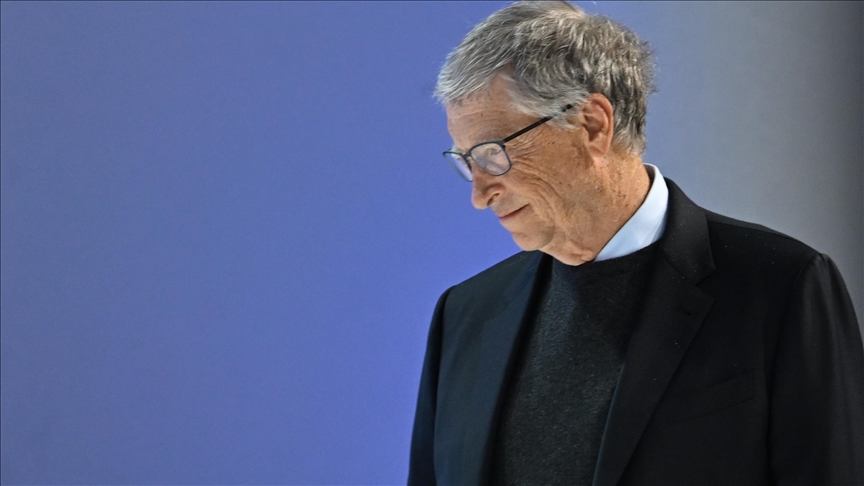In recent months, discussions surrounding global health have gained increased attention from notable figures, including former President Donald Trump and philanthropist Bill Gates. A recent report indicated that Gates met with Trump at the White House to deliberate on pressing global health issues, signaling a potential collaboration between their respective initiatives.
The Context of the Meeting
Bill Gates, co-founder of Microsoft and a prominent philanthropist, has long advocated for global health initiatives, funding several projects aimed at combating diseases like malaria, polio, and HIV/AIDS. His organization, the Bill & Melinda Gates Foundation, has played a key role in promoting health initiatives in developing countries, emphasizing vaccination, maternal health, and disease eradication.
On the other hand, Donald Trump’s presidency was marked by a focus on “America First” policies. This approach has often framed global cooperation within the context of U.S. interests, specifically concerning how international agreements and collaborations could affect American economic and health interests.
The Focus of the Discussion
During their meeting, sources reported that Gates and Trump discussed various dimensions of global health, including vaccine distribution, funding for health organizations, and strategies to combat emerging health threats, particularly in the wake of the COVID-19 pandemic. Both parties emphasized the urgency of addressing these global health crises, as the world has witnessed unprecedented challenges that require coordinated international responses.
One of the pivotal points of conversation was vaccine accessibility. With the rollout of multiple COVID-19 vaccines, both leaders expressed interest in ensuring equitable distribution, especially to lower-income countries that may face significant barriers in accessing these life-saving resources. Gates has consistently advocated for the need to provide vaccinations globally, arguing that this not only protects vulnerable populations but also prevents the emergence of new variants that could threaten the entire world.
Potential Collaborations and Challenges
The cooperation between Gates and Trump may signal an opportunity for renewed partnership aimed at addressing global health challenges. However, significant hurdles exist. The contrasting philosophies of governance, especially regarding foreign aid and international cooperation, create a landscape filled with complexities. Trump’s previous reluctance to allocate funds to global health initiatives raised concerns about the U.S. commitment to global health and humanitarian efforts.
Furthermore, the meeting underscores the necessity for public-private partnerships in tackling health issues. Gates’s philanthropic approach promotes collaboration with governments, foundations, and the private sector to create innovative solutions. By engaging influential figures like Trump, there may be a pathway to leverage resources effectively, ensuring a robust global health response.
Implications for Global Health Policy
This meeting raises several questions about the future of global health policy. With the increasing interconnectedness of globalized society, health issues such as pandemics do not recognize national borders. Therefore, engaging in international dialogue and developing strategies that prioritize health equity and accessibility becomes paramount.
One key implication of this meeting could be the re-establishment of substantial U.S. funding toward organizations such as the World Health Organization (WHO) and Gavi, the Vaccine Alliance. Gates has previously criticized funding cuts to these organizations, pointing out that neglecting global health initiatives could have long-term repercussions not only for affected countries but also for global stability.
Public and Expert Reactions
Reactions to the meeting have been mixed. Some health experts applaud the dialogue between Gates and Trump, viewing it as a potential catalyst for positive change in global health efforts. They stress the importance of collaboration between philanthropic efforts and governmental policy-making to address the intricate challenges posed by global health crises.
Conversely, skeptics express concern over whether the outcomes of such meetings will translate into actionable change. Many point to previous instances where lofty discussions failed to materialize into concrete efforts, ultimately undermining public health initiatives.
Conclusion
As the world continues to navigate the lingering effects of COVID-19 and other pressing global health issues, the meeting between Bill Gates and Donald Trump at the White House serves as a pivotal moment in potential collaborative efforts. It highlights the essential dialogue required among influential figures in shaping the strategies necessary to address complex health challenges.
Despite the philosophical differences between Trump’s administration and Gates’s philanthropic approach, a united front can lead to innovative solutions that benefit global health. Moving forward, the real test will lie in transforming discussions into actions that prioritize health equity and a collaborative approach to fighting global health crises. The stakes have never been higher, and the potential for impactful change rests upon the efforts of all stakeholders involved.
In summary, the meeting of Bill Gates and Donald Trump reflects ongoing conversations about global health priorities. This dialogue raises hope for effective cooperation while also emphasizing the need for actionable commitments that consider both global wellbeing and national interests. Moving forward, fostering partnerships that prioritize sustainable health solutions worldwide will be essential for a healthier future.








